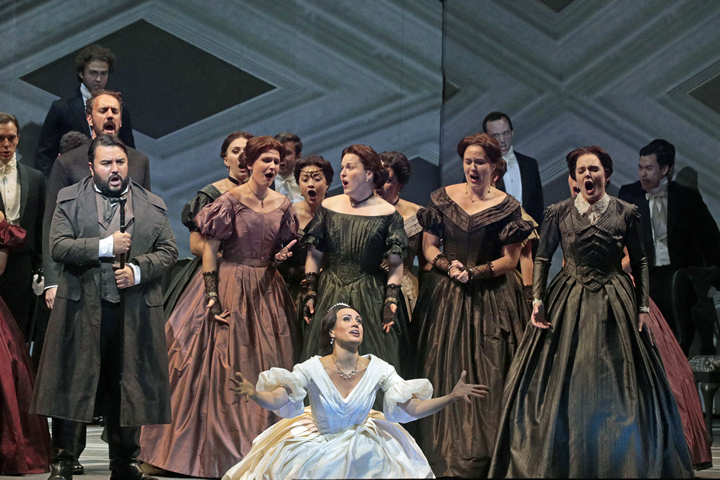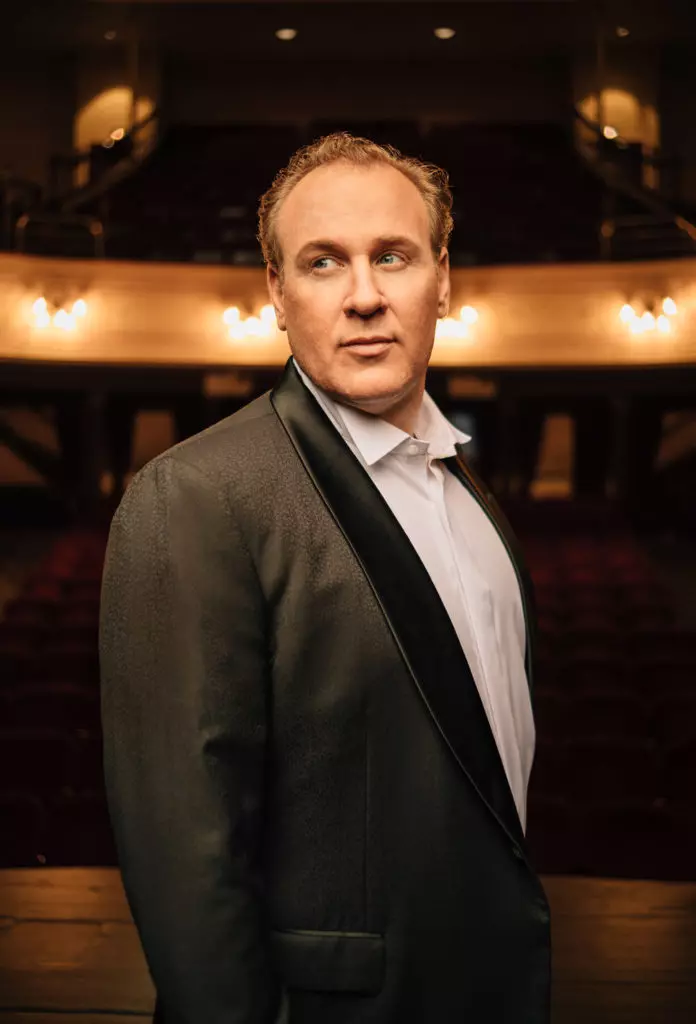
Most unfortunate is Carsen’s demolishing of the fourth wall to show a costume change in front of the stage, interrupting a crucial moment in the story. How this carpet of birch substitutes cover the floor of Tatyana’s supposedly indoor bedroom is a mystery, but that doesn’t prevent Carsen from making the heroine roll passionately in polyester. One additional presence in Act 1 is 40 bushels’ worth of painted polyester pieces representing birch leaves from some symbolic trees that occasionally appear as part of the scrim. Until the crowd scenes of Act 2, the stage remains mostly bare. The set consists of three gigantic PVC panels that cover most of the full dimensions of the War Memorial stage. The SF Opera Chorus in Act 2 of Eugene Onegin | Credit: Cory Weaver The strings did their best approximation of a “Russian sound” Gabriel Young performed an affecting oboe obbligato in the Letter Scene the brass came to life for the dances. Led by the debuting Greek conductor Vassilis Christopoulos, the SF Opera Orchestra performed smoothly, with only a few instances of being ahead or behind the singers.



There was also a special appearance in the one-aria “small role” of Prince Gremin: Ferruccio Furlanetto, whose 43-year-long participation in the company - ranging from roles in Così fan tutte to Attila - was acknowledged with the San Francisco Opera Medal. In the role of Vladimir Lensky (this reviewer noticed the character’s first name after 50 years of missing it), the young tenor Evan LeRoy Johnson filled the cavernous War Memorial with a gorgeous, well-focused, lyrical voice. Muraveva and Canadian bass-baritone Gordon Bintner (Onegin) both shone in their big moments, the soprano in an affecting Letter Scene, Bintner in his futile attempt at the opera’s end to reverse his rejection of Tatyana now that she is a princess. Aigul Akhmetshina as Olga in San Francisco Opera’s Eugene Onegin | Credit: Cory Weaver


 0 kommentar(er)
0 kommentar(er)
